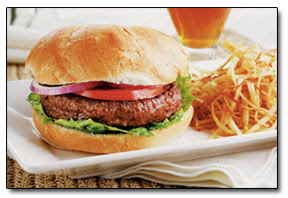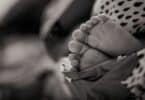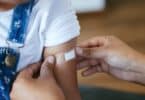Here are some great tips to help you have a healthy, energetic Pregnancy.
1. Reduce the amount of fish you eat while pregnant. Larger fish like Tuna, Shark and Mackerel have high levels of Mercury and may cause health issues for your unborn child. To make sure you still get your Omega-3’s try Udo’s choice 3-6-9 oil on your salad, in shakes or just by the spoonful. Available in gel Caps and straight oil form.
2. Take your prenatal Vitamins. On top of ensuring that you and your baby get all of the nutrition needed, they will reduce birth defects. Most doctors recommend Materna or you can go a reputable health food store and they will help you find something else.
 3. Don’t give in to bad cravings.
3. Don’t give in to bad cravings.
You will find when you are pregnant that all of the sudden your body will ask for something you may not normally eat. These craving could go from a full box of chocolates to pizza to a fully loaded burger with fries and gravy. These foods don’t benefit you or the baby. You will end up feeling worst after downing a greasy burger plus it will probably stay with you until long after the baby has arrived.
4. Visit your doctor regularly. Your doctor will make sure that the things you are experiencing are normal. He/she will schedule your routine tests and ultrasounds. You will probably be referred to an OBGYN around month 6 if everything is going as planned, earlier if there are issues or multiples.
5. Stop Changing the Kitty Litter. Some cats carry a parasite that can give you and your baby a dangerous infection called toxoplasmosis. Often, women pick up the parasite when they change the litter box. The odds of having a problem with toxoplasmosis are low–one in 1,000 pregnancies are affected–but the consequences are serious. In some cases, babies have been born with birth defects, such as severe learning disabilities, water on the brain, or deafness.
6. Get lots of rest. Early on in your pregnancy you may feel tired. It is normal to feel tired as your body works to protect and nurture the developing baby. The placenta (the organ that nourishes the fetus until birth) is just forming, your body is making more blood, and your heart is pumping faster.
 7. Drink 6 – 8 glasses of water. Water plays many vital roles in a healthy pregnancy. Think of water as your body’s transportation system — it carries nutrients through your blood to the baby. Water also helps prevent bladder infections, which are common during pregnancy. If you drink enough water, your urine will stay diluted, reducing your risk of infection. Juices can contribute to your fluid intake, but keep in mind that they can also provide a lot of extra calories. Caffeinated beverages, such as coffee, colas, and teas don’t count as part of your fluid intake because they’re diuretics — they make you urinate more so you actually lose water.
7. Drink 6 – 8 glasses of water. Water plays many vital roles in a healthy pregnancy. Think of water as your body’s transportation system — it carries nutrients through your blood to the baby. Water also helps prevent bladder infections, which are common during pregnancy. If you drink enough water, your urine will stay diluted, reducing your risk of infection. Juices can contribute to your fluid intake, but keep in mind that they can also provide a lot of extra calories. Caffeinated beverages, such as coffee, colas, and teas don’t count as part of your fluid intake because they’re diuretics — they make you urinate more so you actually lose water.
 8. Exercise 15 – 20 minutes a day. Exercising actually makes for an easier pregnancy and delivery. In fact, a study of 500 pregnant women who exercised delivered a healthier baby with a stronger fetal heart rate. Even more compelling is the fact that of the women who exercised, time spent in labor was shortened by about a third, with 65% of the women delivering in four hours or less. And when you’re in labor, every extra hour seems like an eternity. Try Yoga for Pregnant moms, the benefits are mountainous.
8. Exercise 15 – 20 minutes a day. Exercising actually makes for an easier pregnancy and delivery. In fact, a study of 500 pregnant women who exercised delivered a healthier baby with a stronger fetal heart rate. Even more compelling is the fact that of the women who exercised, time spent in labor was shortened by about a third, with 65% of the women delivering in four hours or less. And when you’re in labor, every extra hour seems like an eternity. Try Yoga for Pregnant moms, the benefits are mountainous.
9. Check with your Doctor before taking any over the counter medications or herbal remedies. When you are pregnant, you are not allowed to take most medications. Some are accepted, but double check with your doctor to be totally sure. Side effects of herbal remedies have not been proven during pregnancy. Here is a list of remedies that safe and not safe.
 10. Eat Your Fruit and Veggies. A good balanced diet is good for the baby and eating fruit and vegetables cuts your miscarriage risk in half. Each day you should get the following: 6-11 servings of grain products, 3-5 servings of vegetables, 2-4 servings of fruits, 4-6 servings of milk and milk products, 3-4 servings of meat and protein foods. Foods low in fat and high in fiber are important to a healthy diet.
10. Eat Your Fruit and Veggies. A good balanced diet is good for the baby and eating fruit and vegetables cuts your miscarriage risk in half. Each day you should get the following: 6-11 servings of grain products, 3-5 servings of vegetables, 2-4 servings of fruits, 4-6 servings of milk and milk products, 3-4 servings of meat and protein foods. Foods low in fat and high in fiber are important to a healthy diet.
SOURCE:PARENTHOOD, KIDSHEALTH ,







Kitty Litter? I had no Idea